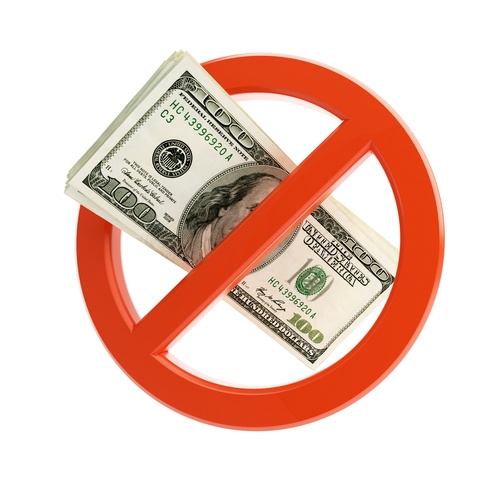sales compensation
-
Wouldn’t Sales Call Play-by-Play Analyses be Fun?
- January 27, 2024
- Posted by: Dave Kurlan
- Category: Understanding the Sales Force

Most sales managers protect their salespeople instead of pushing them to improve. Most companies set budgets that formulaically increase year-over-year budgets by just 3.5%. The sales recruiting process and selection criteria at most companies are horrible. Most sales training is product-focused instead of sales development. Most salespeople are not consistently or effectively coached. Most senior sales leaders are indifferent about doing anything about those things.
-
What If Pay Equity Comes to Sales Teams?
- February 28, 2023
- Posted by: Dave Kurlan
- Category: Understanding the Sales Force

When pay equity comes to sales teams, top performers will be the group that is most affected. While it is too early to know whether their incomes will be reduced, they will be compensated equally with the worst performers on the team. If you are a top performer, and you are no longer earning significantly more than the worst performers in the company, what would you do? Here are some possibilities:
-
New Data: Is Sales Compensation Aligned With Changing Motivational Needs?
- October 31, 2022
- Posted by: Dave Kurlan
- Category: Understanding the Sales Force

When interviewing sales and sales leadership candidates, similar counter-intuitive discussions occur. Many candidates claim that money isn’t that important because they love sales – until they claim that the base salary isn’t high enough. For others, even though they may not disclose it, the base salary is completely irrelevant as long as the company won’t cap the salesperson’s total earnings. We need to decode the topic of compensation so that we can be sure that both the base salary and the total on-plan earnings are acceptable to candidates.
It is very important to make sense of the hidden and unpredictable compensation responses because many salespeople leave the company after a short time because they don’t believe earnings are equivalent to the compensation that was promised.
It is crucial to understand that salespeople are motivated primarily by one of two motivational styles and unless you wish to hire only one type of salesperson, there must be two compensation plans that should be tailored accordingly. Let’s discuss this.
-
The Sales Compensation Plan from Hell and How to Improve It
- September 17, 2021
- Posted by: Dave Kurlan
- Category: Understanding the Sales Force

Have you ever seen a compensation plan so complicated, so illogical and so detailed that all you could do was stare at it and wonder, WTF?
I did. This week. Couldn’t make heads or tails of it. There were several sales groups selling different services to different audiences, several roles in each group, different plans for each role, different percentages, some of the compensation was guaranteed but some was variable and had to be earned by achieving quantitative and qualitative goals consisting of variable weighted goals, some of which were based on revenue while others were based on percentage achievement of goal. The only way to figure it all out was to draw a table on the white board and start filling it in. When we were done it looked like the monstrosity below:
-
Why You Should Care That Sales Motivation Data Correlates Perfectly With Sales Effectiveness
- September 13, 2017
- Posted by: Dave Kurlan
- Category: Understanding the Sales Force

I reviewed the data and in the table below you’ll see that extrinsic motivation is most prevalent in the top group of salespeople while altruistic motivation is most prevalent in the lowest group of salespeople.
-
How to Change a Crappy Sales Compensation Plan to a Better One
- November 3, 2016
- Posted by: Dave Kurlan
- Category: Understanding the Sales Force

First, this is simply an example – one example – and not the only way to create a sales compensation plan. However, this example will illustrate the most important component to be changed.
-
Are These the Best Roles for Shy People in Sales?
- May 12, 2016
- Posted by: Dave Kurlan
- Category: Understanding the Sales Force

I received an email inviting me to review and share an infographic on shy people in sales. Being an introvert myself, I thought it would be interesting to check it out and see if it resonated. When I finally got around to reading it, I was surprised by several things I read…and I’m sure you’ll be surprised too…
-
How Wrong are Company Methods to Rank and Compensate Salespeople?
- February 23, 2016
- Posted by: Dave Kurlan
- Category: Understanding the Sales Force

When report cards and grades are available, measuring the academic success of your child or grandchild is a lot easier than it is to measure sales success. School grades go up and we say, “Great effort!” School grades go down and we say, “Oh-oh, something is seriously wrong here!” Academic grades are a reflection of test scores, completed homework and class participation. Sales grades are another story altogether and that is where most companies make terrible, horrible, awful mistakes. Do you think you know what those mistakes are?
-
Closing Sales, Process, Hauntings, Training & More
- March 23, 2015
- Posted by: Dave Kurlan
- Category: Understanding the Sales Force

Today I will explore the least-read articles I have ever written. That’s right. The least read. It’s very fashionable – and a best practice – to continue promoting the most-read, most-liked, most-favorited, most-shared, most-tweeted and most-commented articles; but I don’t think anyone has gathered up their worst work and said, “Look at this!” It’s actually not my worst writing.
-
Get Sales Compensation Right to Recruit Winning Salespeople
- August 13, 2013
- Posted by: Dave Kurlan
- Category: Understanding the Sales Force
Sales candidates, especially good ones, are exponentially more difficult to attract than they were just two years ago. We regularly observe clients struggling when it comes to getting resumes from quality candidates. One of the reasons is compensation.

